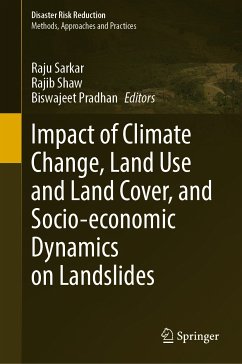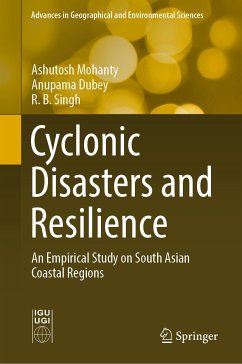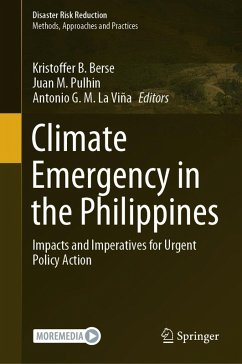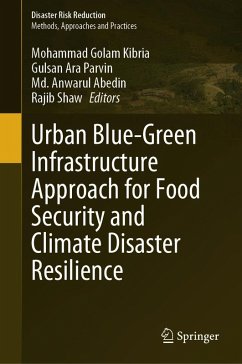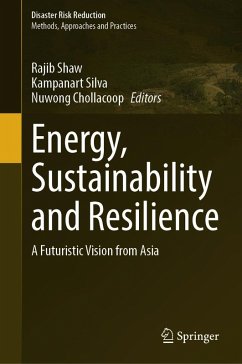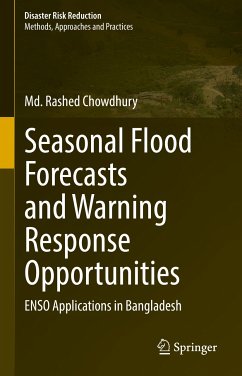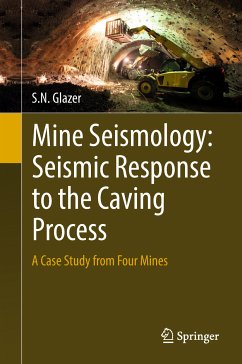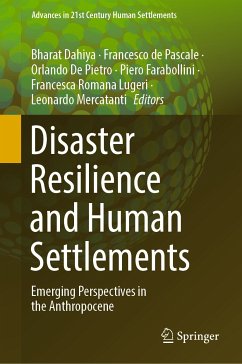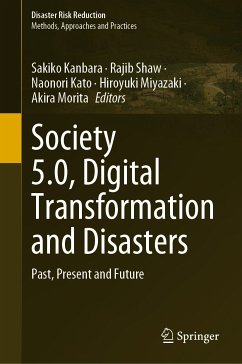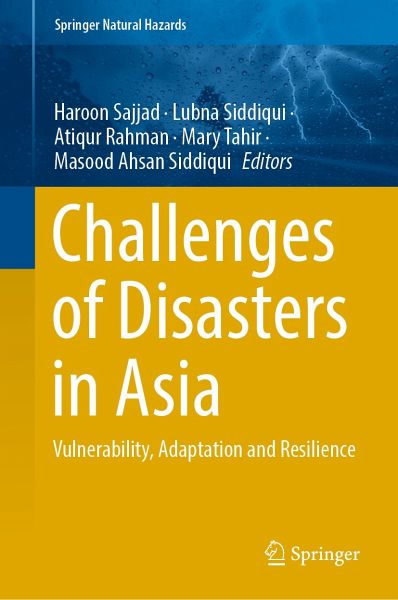
Challenges of Disasters in Asia (eBook, PDF)
Vulnerability, Adaptation and Resilience
Redaktion: Sajjad, Haroon; Siddiqui, Masood Ahsan; Tahir, Mary; Rahman, Atiqur; Siddiqui, Lubna
Versandkostenfrei!
Sofort per Download lieferbar
80,95 €
inkl. MwSt.
Weitere Ausgaben:

PAYBACK Punkte
40 °P sammeln!
The book provides an understanding about the disaster impacts, vulnerability assessment, adaptation pathways and mitigation for strengthening the resilience of the society to various hazards. Multi- dimensionality of disasters is depicted by various approaches and effective modelling. The book is a synthesis of research papers presented at online International Conference on the theme organized by the Centre for Disaster management, Department of Geography, Jamia Millia Islamia in collaboration with National Institute of Disaster Management and Regional Remote Sensing Centre (North), Indian Spa...
The book provides an understanding about the disaster impacts, vulnerability assessment, adaptation pathways and mitigation for strengthening the resilience of the society to various hazards. Multi- dimensionality of disasters is depicted by various approaches and effective modelling. The book is a synthesis of research papers presented at online International Conference on the theme organized by the Centre for Disaster management, Department of Geography, Jamia Millia Islamia in collaboration with National Institute of Disaster Management and Regional Remote Sensing Centre (North), Indian Space Research Organization (ISRO), New Delhi, India during 02-03 March, 2021. The book has been organized into four parts spreading over 28 chapters. Part I deals with the impact assessment of various disasters. Part II examined ecological and socio-economic vulnerability arising out of the disasters. Part III identifies possible solutions for lessening vulnerability to disasters and effective adaptation strategies. Finally, part IV provides an insight for making the societies resilient to the disasters. The main focus of each chapter was laid implicitly on policy concerns focusing on disaster reduction at spatial scales. The book will immensely be helpful for the researchers, academicians and scientific communities for discussing set of questions necessary for future research. It will attract the attention of functionaries, practitioners, policy makers, training institutes and stakeholders for making appropriate methods of communicating risks and adaptation strategies for disaster management.
Dieser Download kann aus rechtlichen Gründen nur mit Rechnungsadresse in A, B, BG, CY, CZ, D, DK, EW, E, FIN, F, GR, HR, H, IRL, I, LT, L, LR, M, NL, PL, P, R, S, SLO, SK ausgeliefert werden.




